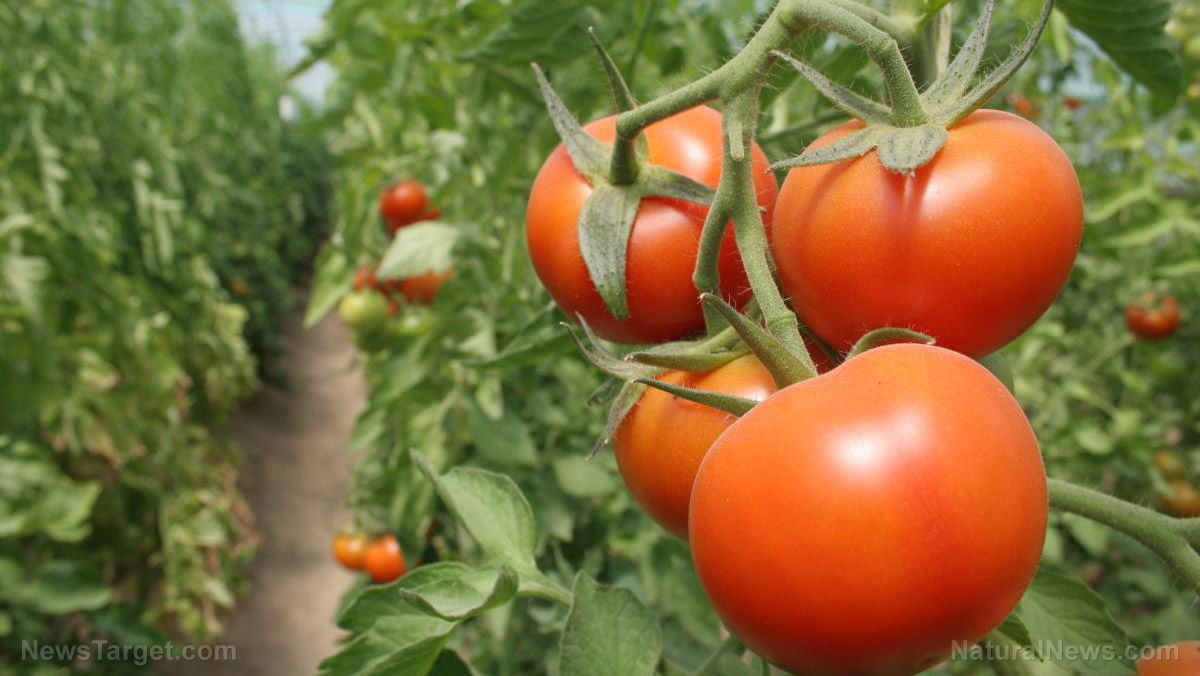
Advertisement
A study conducted by the Ain Shams University in Cairo and the Institute of Environmental Studies and Research has found that tomato fruits grown in soil contaminated with heavy metals affects the “physico-biochemical properties” of the tomatoes.
The scientists, who published their study in the journal Soil & Plant Science, measured the characteristics of tomatoes harvested from contaminated soil. These properties include their length, diameter, volume and dry and fresh weights, total soluble solids, titratable acidity as well as lycopene levels and carbohydrate content. The researchers also examined secondary metabolites in the tomatoes like flavonoids and the total amount of phenols, along with the presence of micro and macro nutrients. Furthermore, they also measured the presence of residual heavy metals like cadmium, lead, nickel and cobalt. They then compared their findings to a similar data set gathered from tomatoes that were cultivated in soil that hasn’t been contaminated with heavy metals.
Perhaps not surprisingly, the researchers found that the presence of heavy metals in the soil had an adverse impact on the lycopene levels, ascorbic acid and carbohydrate content, the presence of microelements and the total soluble solids and titrable activity of the tomatoes. This is in addition to the expected higher levels of heavy metals in the fruits, which can wreak havoc upon the body.
Soil contamination is a serious health concern
According to the European Food Safety Authority, the accumulation of heavy metals in the body can be very harmful. For example, one of the heavy metals found in the tomato study, nickel, can cause allergic reactions upon short-term exposure, and long-term exposure has been linked to developmental and reproductive effects in animal studies.
Another metal in the study, lead, is highly concerning because of its extreme toxicity even in small amounts. According to the FDA, lead that gets into tomatoes and other plants through the soil while growing cannot be washed away completely. No level of lead is considered safe, and chronic exposure can lead to damage to the brain and nervous system, developmental delays, issues with speech and hearing, learning problems and behavioral issues.
On of the biggest contributors to exposure to cadmium are vegetables grown in contaminated soil. This issue is very concerning for vegetarians, who are more likely to be exposed to cadmium-contaminated foods. Cadmium poisoning can cause kidney toxicity, which leads to renal failure as well as bone demineralization. In addition, because cadmium is classified as a carcinogenic substance, cadmium exposure has been linked to a higher risk of lung, endometrial, breast and bladder cancer.
Take matters into your own hands
The researchers recommend that people avoid eating tomatoes cultivated in areas that may have contaminated soil in order to avoid the buildup of heavy metals in their bodies. Studies like this one serve to illustrate the importance of trusting the source of your produce. However, without access to laboratories that can test the heavy metal content in produce, people aren’t likely to know whether or not the tomatoes they eat were cultivated in contaminated soil.
The best way to make sure the tomatoes you consume aren’t contaminated is to grow them yourself. If you’re able to secure a trustworthy source of uncontaminated soil and a bunch of organic tomato seeds, you can start your own tomato garden in your home. If you live in an apartment or don’t have a big yard, you can acquire grow boxes to help you out.
Just a single tomato plant will yield around ten pounds of fruit throughout a season, and the plants will bear tomatoes throughout the year in most places.
Avoiding heavy metals is certainly enough of a reward on its own, but many people find that homegrown tomatoes are also a lot more flavorful than their store-bought counterparts, making this an endeavor that will pay off in many ways for years to come.
Sources:
Advertisements







